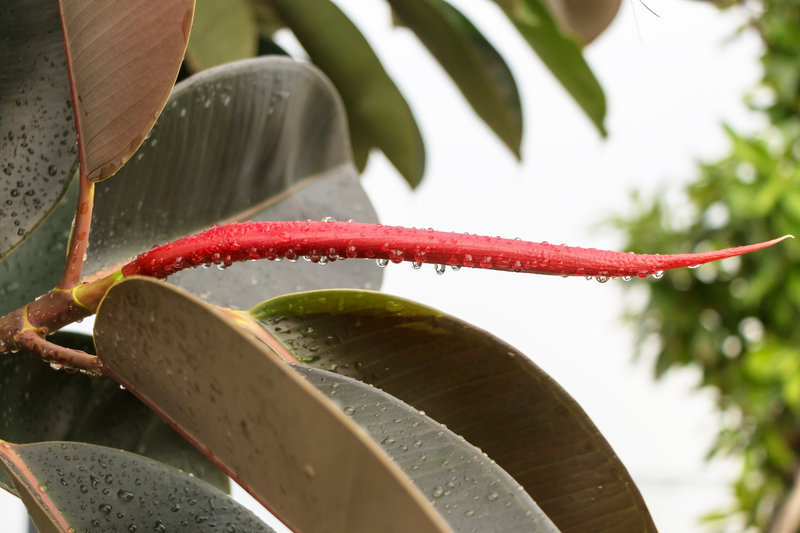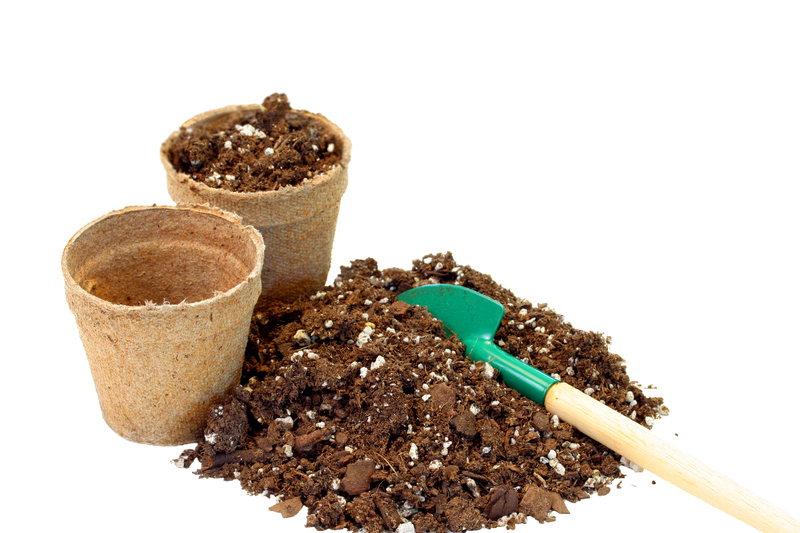Dive Into Gardening with 9 Essential Beginner Tips
Posted on 18/08/2025
Dive Into Gardening with 9 Essential Beginner Tips
Gardening offers a refreshing escape into nature and can turn any space--big or small--into a personal oasis. If you're looking to start your own garden, beginner gardening tips can provide much-needed guidance and confidence. In this comprehensive guide, we'll walk you through nine essential gardening techniques for beginners that will help you cultivate a thriving, beautiful garden.

Why Start Gardening?
Gardening isn't just about plants--it's about connecting with the earth, improving mental wellness, and reaping the rewards of your labors. Whether you're interested in growing flowers, vegetables, or herbs, the process can be immensely satisfying. Plus, introducing regular gardening to your routine can boost physical health, lower stress, and even improve your diet if you grow your own produce!
9 Essential Tips for New Gardeners
1. Start Small and Choose the Right Location
One of the most important gardening tips for beginners is to start small. It's easy to be swept away with grand plans, but a smaller garden is much easier to manage and maintain.
- Select a spot that receives adequate sunlight, usually six to eight hours daily for most vegetables and flowers.
- Ensure the location has access to water and is not prone to flooding or strong winds.
Remember, you can always expand your garden as your skills and confidence grow!
2. Know Your Growing Zone
Your region's climate, or "hardiness zone," determines what plants will thrive in your area. Find your local USDA Plant Hardiness Zone or an equivalent for your region. This knowledge ensures you select plants suited to your climate, which is a top gardening tip for beginners.
- Check seed packets or plant tags for recommended zones.
- Consult local nurseries--they offer valuable advice about plants that grow well nearby.
3. Understand Your Soil
The foundation of a successful garden is healthy soil. Assess your soil's texture (loamy, sandy, or clay), pH, and nutrient content. Local cooperative extensions offer soil testing, or you can use DIY soil test kits.
- Loamy soil is ideal as it retains nutrients and drains well.
- Amend your soil with compost, aged manure, or organic matter to improve texture and fertility.
- Beware of overly compacted or sandy soils, which may need extra amendments.
4. Pick Easy-To-Grow Plants
Choosing the right plants sets you up for success. As a beginner, opt for low-maintenance, disease-resistant varieties that do well in your region. Some ideal choices for new gardeners include:
- Lettuce, spinach, and leafy greens
- Tomatoes (choose bush or cherry for small spaces)
- Zinnias, sunflowers, and marigolds (for easy, colorful blooms)
- Basil, chives, and mint (great for culinary use)
Starting with seeds is budget-friendly, but seedlings from nurseries provide a head start.
5. Follow a Watering Schedule
Consistent watering is crucial, especially in the early stages. Both overwatering and underwatering can damage plants. Develop a watering routine based on your climate and plant needs.
- Water early in the morning or late afternoon to minimize evaporation.
- Check soil moisture--a finger an inch into the earth is a simple gauge.
- Use mulch to retain moisture and moderate soil temperature.
Pro Tip: New gardeners often overwater. Watch for yellowing leaves--a sign of too much moisture.
6. Feed Your Plants Wisely
Give your plants the nutrients they need for vigorous growth. While organic matter like compost provides a slow-release source of nutrients, supplemental fertilizers can boost plant performance, especially in poor soils.
- Use balanced fertilizers for vegetables (often labeled 10-10-10 or 20-20-20).
- Follow package instructions to avoid over-fertilizing, which can harm plants.
- Organic options, such as fish emulsion or manure tea, are gentle and eco-friendly.
7. Master Mulching
Mulch offers multiple benefits for any garden, such as suppressing weeds, retaining moisture, and regulating soil temperature. Spread a 2-3 inch layer around plants, keeping it a few inches from stems to prevent rot. Popular mulching materials include:
- Shredded bark
- Straw
- Compost
- Pine needles
8. Control Weeds and Pests Naturally
Healthy gardens attract various critters, not all of which are welcome! To foster a thriving garden:
- Hand-pull weeds when soil is moist for easy removal.
- Encourage beneficial insects (like ladybugs and bees) by planting native flowers.
- Use natural sprays such as neem oil or insecticidal soap for pest problems.
- Practice crop rotation and companion planting (e.g., planting marigolds near vegetables deters pests).
Tip: Avoid harsh chemical pesticides, which can harm beneficial insects and your soil's health.
9. Be Patient and Keep Learning
Perhaps the most important advice for beginner gardeners is to embrace patience. Plants need time to grow and flourish. Don't be discouraged by setbacks--every season is a new chance to learn.
- Document your gardening journey in a journal. Note what works and what doesn't.
- Join local gardening clubs or online forums for support and inspiration.
- Read books, watch videos, and experiment--experience is the best teacher!
Bonus: Essential Gardening Tools for Beginners
Having the right tools makes a big difference in your gardening experience. For new gardeners, consider these must-haves:
- A sturdy trowel for digging and planting
- Hand pruners for trimming and snipping
- Garden gloves to protect your hands
- Watering can or garden hose with adjustable nozzle
- Garden fork or hoe for cultivating soil
Regularly clean and store your tools to extend their lifespan and maintain gardening efficiency.
Common Mistakes New Gardeners Make (& How to Avoid Them)
- Overplanting: Less is more. Crowding plants reduces airflow, encouraging disease.
- Ignoring plant tags: Pay attention to spacing, sunlight, and mature size.
- Neglecting soil health: Healthy soil = healthy plants. Amend regularly with compost.
- Forgetting to mulch: Mulch controls weeds and improves moisture retention.
- Inconsistent watering: Aim for deep, infrequent watering rather than light, frequent sprinkles.
The Benefits of Gardening for Beginners
When you take the plunge and dive into gardening, you'll quickly see the personal and environmental benefits:
- Physical wellness: Gardening is light exercise that boosts strength and flexibility.
- Mental health: Spending time in green spaces reduces anxiety and increases happiness.
- Fresh produce: Homegrown fruits, vegetables, and herbs taste better and are more nutritious.
- Biodiversity: Your garden can serve as a haven for pollinators and beneficial wildlife.
- Sustainability: Growing your own food reduces your carbon footprint and reliance on commercial produce.
Expanding Your Gardening Knowledge
The world of gardening is vast--there's always more to learn! If you're inspired to keep growing as a gardener, consider these next steps:
- Try vertical gardening or container gardening for small spaces.
- Experiment with seed saving and propagation to multiply your favorite plants.
- Delve into organic gardening practices.
- Design a pollinator-friendly garden with diverse flower varieties.
- Get children involved for a fun, hands-on learning experience.
Conclusion: Dig In and Get Growing!
Gardening is a rewarding journey with continual opportunities for growth. By following these nine essential novice gardening tips, you'll build a strong foundation for a flourishing backyard or balcony paradise. Dive into gardening with curiosity and patience--and watch as your garden, and your confidence, blossom!
Ready to get your hands dirty? Start small, savor each success, and remember: every great gardener was once a beginner.

Frequently Asked Questions for Beginner Gardeners
Q: What month is best to start a garden?
A: It depends on your climate, but most new gardeners can start sowing seeds or planting seedlings after the last frost of spring. Consult your region's planting calendar for the best timing.
Q: How much sun do most beginner garden plants need?
A: Most vegetables, herbs, and annual flowers need at least six hours of direct sun daily. Some crops, like lettuce and spinach, tolerate partial shade.
Q: What are the best ways to prevent garden pests?
A: Use natural deterrents like neem oil, encourage beneficial insects, and practice crop rotation. Mulch and good gardening hygiene also help keep pests at bay.
Q: How often should I water my beginner garden?
A: Most new garden beds require deep watering two to three times per week, but always check local conditions and your plants' individual needs.
Start Your Gardening Adventure Today!
You have all the essentials to begin your gardening journey. With these 9 beginner gardening tips, you'll be growing, harvesting, and enjoying nature's bounty in no time. Happy gardening!
Latest Posts
Boost Privacy Instantly with 9 Fast-Growing Hedge Picks
Techniques for Innovative Hedge Sculpting
Creating Lifelong Wonders with a Child-Friendly Garden
Nurture Your Soul with a Zen-Inspired Garden Design
A Greener Tomorrow: Nutrient-Rich Soil from Organic Remnants



